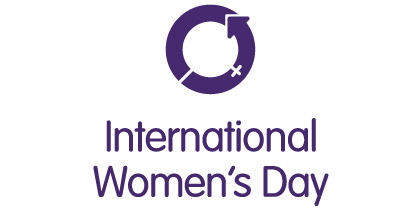
March 7, 2014, by Kelly Cookson
The role and influence of women entrepreneurs in (UK) society today
Written by Dr Janine Swail.
As a researcher of women’s entrepreneurship at the Haydn Green Institute for Innovation and Entrepreneurship, and on the eve of International Women’s Day, I could not think of a better time to reflect on the role and influence of women entrepreneurs in (UK) society today.
My work explores the decision-making processes of women who are considering an entrepreneurial career and the considerations they must make, not just for their proposed businesses, but for the household to which they contribute and the roles they play within that household (be they mother, wife, primary carer, breadwinner). All too often media portrayals of the successful entrepreneur and their business disregard the pivotal influence of the household and how this can influence the types of businesses women start and the aspirations they have for that business (growth vs. lifestyle, home-based, online, etc.). The majority of new and small firms are run within households, not by individuals – there may be a lead entrepreneur but she/he will be socio-economically embedded within a family or community group. So when the media celebrate the lone pursuits of the stereotypical (often male and white) entrepreneur operating a high-growth business, usually in a risky environment, they are merely drawing attention to a highly aspirational form of entrepreneurship that is not open to most, preventing us from understanding how the majority of people ‘do’ entrepreneurship.
More regrettably, when women are celebrated and highlighted for their entrepreneurial successes it is often because they still remain true to their feminine characteristics and behavioural expectations. So, for example, the ‘Mumpreneur’ is a common media buzzword for a mother who sets up her business, often within the home, with modest performance at best because she juggles breastfeeding with business blogging. Why the need for such role delineation? Dare we ask, where are the ‘Dadpreneurs’?
Indeed, whilst it was encouraging to see two young women go head-to-head in last year’s series of The Apprentice to secure a £250K investment from Lord Sugar for their start-ups, thanks to clever editing, these photogenic contestants served to sexualise the role of the young female entrepreneur – so not only does she have to have a sound business idea, she also needs to ‘look the part’. The ultimate irony is that Apprentice winner Dr. Leah Totton opened her first cosmetic skin clinic earlier this year – again succeeding in establishing a successful business, but within the confines of a industry that makes profit from playing on the insecurities of individuals (mainly women) wanting to remain young and look beautiful. Is this really worth celebrating on International Women’s Day?
Entrepreneurship has emerged as a fundamental construct, particularly within contemporary Western societies, and reflects the socio-economic/political trend towards individualism and the enterprising self (Du Gay, 2004). This is coupled with the assumption that entrepreneurship is open to anyone who has personal drive, determination and energy to follow through. But in reality it is subject to numerous constraints and prejudices regarding who and/or what is a legitimate entrepreneur. On International Women’s Day, we should of course celebrate the women entrepreneurs who are contributing to their economies worldwide and making a difference in their communities, but we also need to think critically about how, in its current ideological state, entrepreneurship remains prejudicial against women. This concept of entrepreneurship fails to properly recognise the unequal social conditions and subtle structural barriers to success that exist even in the most developed of economies. Finally, we as entrepreneurship educators have a responsibility to engender awareness among aspiring women entrepreneurs about the current ‘state of play’, so that they are mindful and even critical of societal role expectations and assumptions about them, and so this can inform their decision-making as they undertake entrepreneurial ventures and develop their careers.
No comments yet, fill out a comment to be the first

Leave a Reply